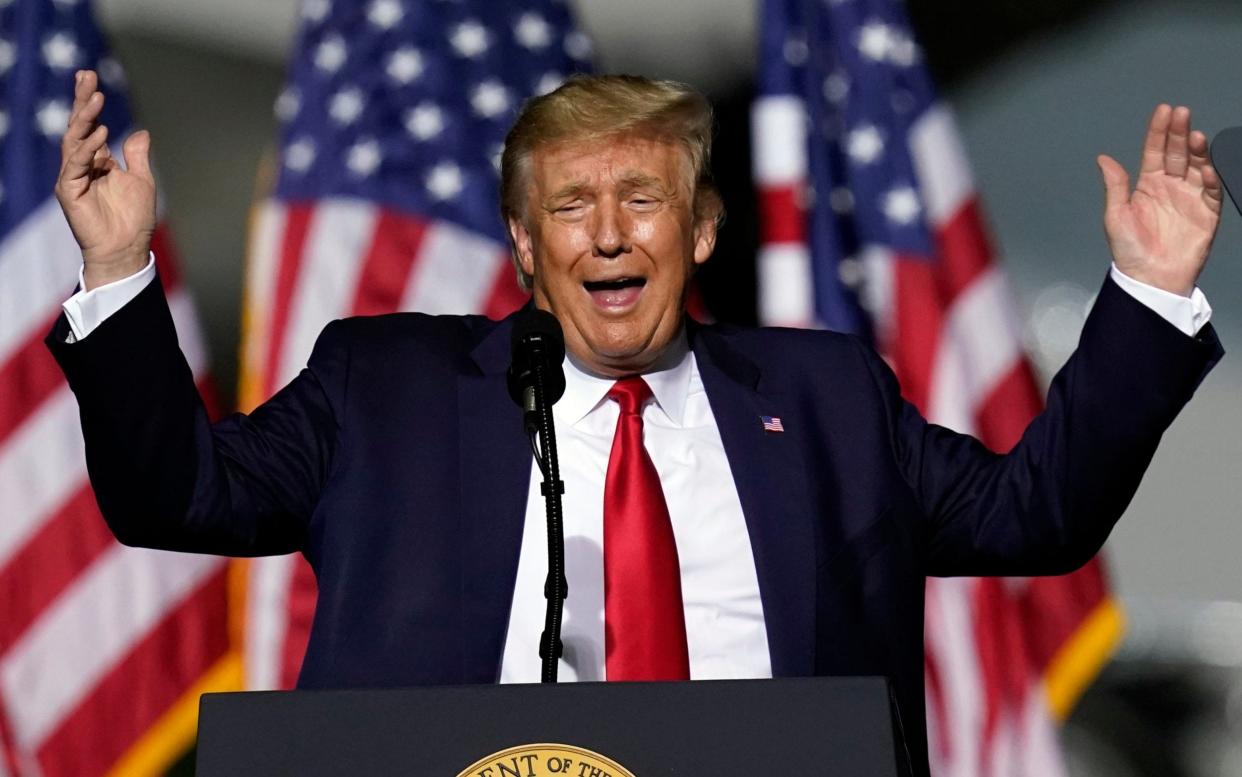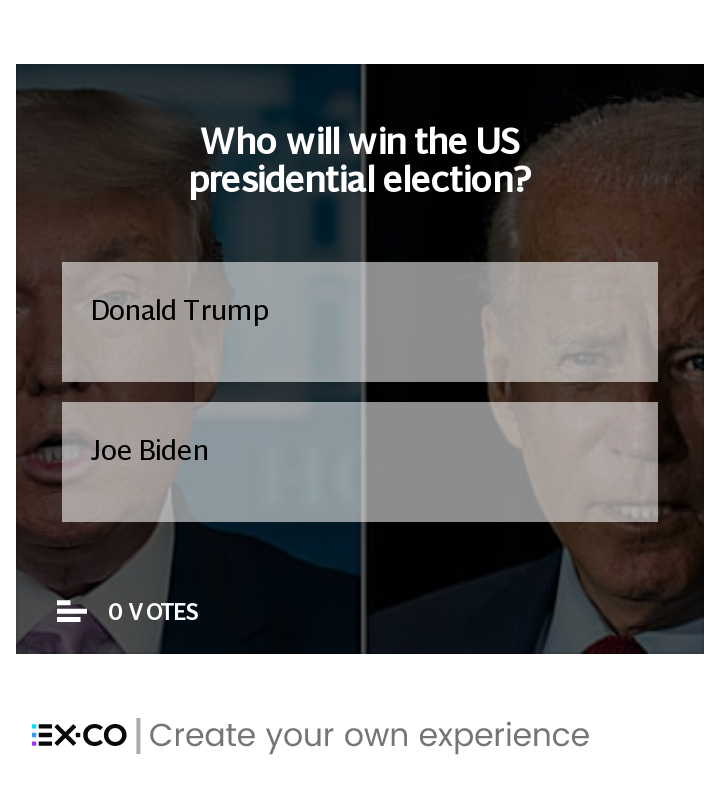Investors fear Wall Street chaos in wake of US election

Investors are bracing for severe volatility lasting weeks after the US presidential election as Wall Street frets over a disputed or uncertain result that could rattle financial markets.
Futures contracts on the VIX index - also known as the “fear gauge” - suggest investors are expecting a prolonged period of volatility on stock markets amid fears of Donald Trump contesting the result.
VIX futures point to investors bracing for the likelihood of “multiple days of volatility”, warned UBS strategist Stuart Kaiser.
Expectations for volatility on election day are “still high” but have dropped in recent weeks as a clear result on the night is unlikely. The upward move in November futures above October - an unusual pattern in the run-up to a US vote - indicates market worries of post-election turmoil in Washington lasting for weeks, analysts warned.
VIX futures suggest that volatility “will stay elevated into year-end”, UBS added.
Democratic presidential challenger Joe Biden is seven points ahead in national polls and beating the US President in most swing states.

However, full results are unlikely on election night due to an expected surge in postal voting because of the pandemic.
“The fact that equities are paying close attention to the election is evident in the sharp kink in the VIX futures curve around the election,” said Marion Laboure, a Deutsche Bank analyst.
“Equities have historically gone sideways ahead of the election as investors buy protection in the option space against potential volatility around the election.”
Critics of Mr Trump fear he will use any results delay or disputed votes to challenge the election’s validity. Last week the President refusing to commit to a peaceful transition of power if he loses. However, he was later slapped down by top Republicans, including Senate leader Mitch McConnell, who promised an “orderly” transition.
“The most unpleasant scenario for the markets in the US presidential election on November 3 would be an unclear outcome,” said Bernd Weidensteiner, economist at Commerzbank.
The court battle that followed the 2000 election between Al Gore and George W Bush did not lead to severe volatility but this time “political chaos would hit markets”, he said.
Amid the deepening political divide in the US, it is “not entirely clear whether the side that ultimately loses will take the decisive step to calm the situation, namely to openly concede the election”. Mr Weidensteiner added that the US dollar in particular would suffer.
US stocks have hit new heights amid the pandemic, responding mainly to record levels of stimulus the Federal Reserve has injected into the economy.
Mr Trump’s surprise victory in 2016 caused brief volatility in markets before stocks rallied strongly on hopes of tax cuts and deregulation.
The S&P 500 has soared 56pc since he was elected but stocks have come off record highs in recent weeks.
The resurgence of the pandemic in Europe and the US has dented confidence in the economic recovery with focus starting to move towards the election on November 3.
“While equities tended to perform poorly ahead past elections, they typically rebounded thereafter,” said Emmanuel Cau of Barclays. “For now, high uncertainty is feeding the demand for safety.”


